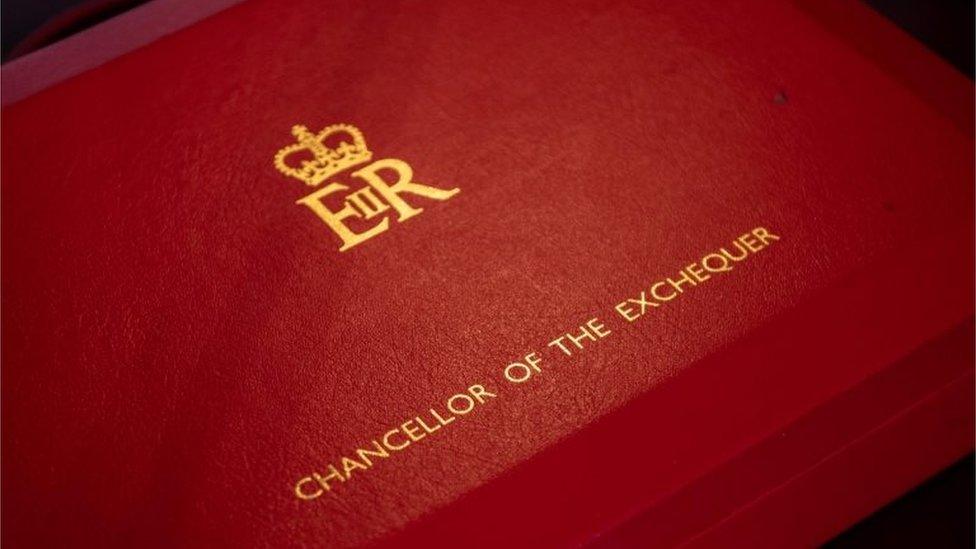Budget 2020: What should we make of Tory spending promise?
- Published

If you wondered what the government's new buzz phrase of 'levelling up' was meant to mean, the Conservatives will try to provide the answer tomorrow.
In his first budget, the Chancellor, Rishi Sunak, will commit to the biggest increase on spending on capital - roads, rail, research - that there has been in generations.
He's expected to promise to sign a hypothetical cheque of more than 拢600bn of gross public sector investment, to be cashed by the middle of 2025, we understand.
And the Treasury tonight claims it will push public investment in real terms to levels not seen since 1955.
It's wise to be careful with the historical claims. The economy is totally different to that era.
As with any Budget, the words in black and white in the Treasury documents tomorrow, the final numbers in the columns matter enormously, and more of course, than the preloaded political messaging.
It's worth noting too, that public sector investment is normally counted in the 'net', not the 'gross' figure, which makes the numbers sound more impressive.
And more than anything else, remember capital spending on shiny new projects is not the same as day-to-day spending on schools, prisons, hospitals and other vital public services.
Promising big bucks for big projects won't make the very real strain on some public services go away.
But tomorrow will represent a notable and significant gear-change in the kind of levels of investment spending we have seen in recent decades, certainly since the period when Margaret Thatcher was in charge - if, of course, the government manages to find enough projects that are ready and waiting to receive the cash and they can get it out of the door.
Labour is already out tonight saying, 'we've heard it all before'.
The new resident of No 11 will also confirm that the Treasury will change the way it calculates the benefit of public spending - to include how it spreads wealth around the country, not how much it contributes in total.
That sounds academic, but it matters a lot.
Government number crunchers will no longer just be looking at the national bottom line when considering whether projects are good value for the taxpayers' money, but how it affects the economy around the country.
Conservative strategists hope tomorrow will mark a down payment to voters who turned to their party for the first time at the election in December.
But some parts of the public sector will still feel the pinch.
- Published10 March 2020
- Published10 March 2020
- Published6 March 2020